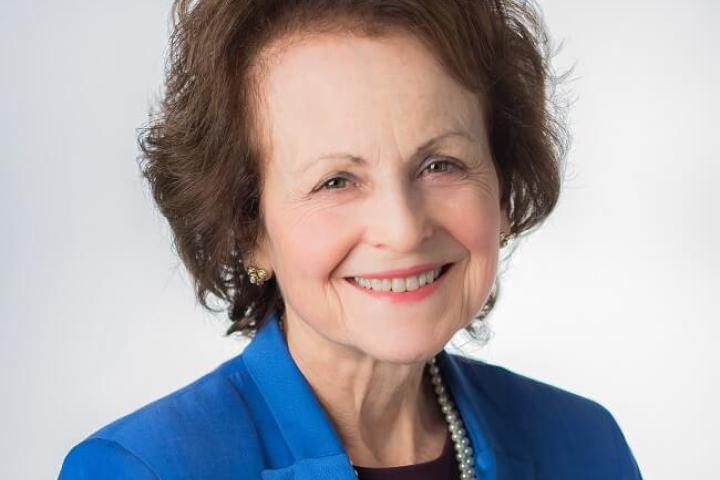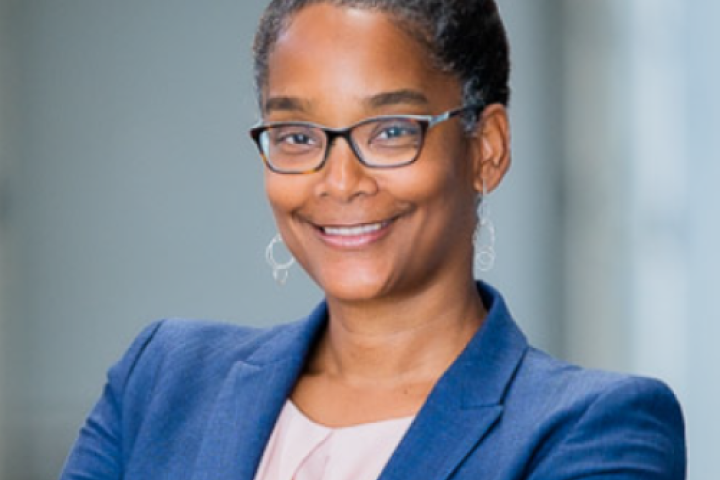Claire D. Brindis Award for Community Engagement & Service in Health Policy Research

The Claire D. Brindis Award for Community Engagement and Service in Health Policy Research is sponsored by the Philip R. Lee Institute for Health Policy Studies at UCSF. This award recognizes UCSF faculty who are engaged in policy-focused research and advocacy which address social, health, and, ethnic, and racial disparities; this research and advocacy serve to improve community wellbeing, and are exemplified by the stakeholder-focused contributions which are a hallmark of Dr. Brindis’ career. Community engagement and service spans a range of fields and topics, including – but not limited to – collaboration with federal, state, or local government agencies, local and community clinics, school systems, and community-based organizations. Additionally, such service may include other community and institutional efforts to advance the health and well-being of historically underserved and excluded populations.
The Claire D. Brindis Award for Community Engagement and Service in Health Policy Research is awarded to a UCSF faculty member who embodies Dr. Brindis’ commitment to giving voice, representation, and service to historically underserved communities; this advocacy and research in healthcare design inform policymaking in ways which achieve tangible gains in health and well-being.
Nominations open now: Due February 27, 2026
Eligibility
UCSF senior faculty, at Associate Professor or Full Professor rank, with research interests in health policy and/or health services research (HP/HSR) are eligible for this award. Nomination letters should demonstrate that each nominee has made significant and sustained impact in mitigating health disparities and whose efforts have served to improve community health. Additionally, it is important that it be demonstrated that nominees have been actively and directly engaged with communities and/or policy leaders.
Nominations are welcome for all individuals who meet academic, professional, and interest criteria. The Award Committee does not use race, gender, sex, or other protected categories or proxies for protected categories in the selection process.
Criteria
The successful nominee will:
· have a long-standing commitment to policy or advocacy in community-based research and its applied translation.
· have had a major impact on community health – either in research impact or through policy change.
· be someone who currently serves as a “bridge” between community, policy makers, and researchers/university.
· be someone who serves as a role model and mentor in leadership, professionalism, integrity, and life balance – in ways which go beyond the scope of their individual job responsibilities.
Nominations
Nominators must be members of the UCSF community who are involved in health policy research, and who have specific knowledge regarding the current and past community impact and/or policy impact brought about by the nominee’s contributions.
Nominations must include one primary and one supporting letter (no longer than two pages each) describing how the nominee meets the above criteria. Each letter may be co-signed by multiple authors/nominators. Specific examples or anecdotes are helpful. Please include the nominee's recent CV.
Please address letters to the Brindis Award Selection Committee and send (via email) by 5pm PT, February 26, 2026 to Joanne Spetz, PhD, and Audrey Durazzo (joanne.spetz@ucsf.edu; audrey.durazzo@ucsf.edu).
The Brindis Award selection committee includes representatives from each of the four UCSF schools (Dentistry, Medicine, Nursing, and Pharmacy).
Award
A framed certificate will be presented to the award recipient, and a reception will be held in the recipient’s honor. The individual's name will appear on a permanent plaque at the Philip R. Lee Institute for Health Policy Studies, and the recipient’s profile will be posted on the Institute’s website. Additionally, the individual will receive an award of $1,000.
About Claire Brindis
Claire D. Brindis, DrPH, Distinguished Professor of Pediatrics, is a native of Argentina. Dr. Brindis joined the Philip R. Lee Institute for Health Policy Studies and UCSF in 1983, and served as the Institute’s third director (2006-2020). Dr. Brindis also served as co-director of the Adolescent and Young Adult Health National Resource Center and as a founding director of the Bixby Center for Global Reproductive Health at UCSF.
Dr. Brindis’ health policy research has produced an important body of evidence; the use of this evidence in the development of local, state, and national policy – and the resulting sustained, direct positive impact on communities – are hallmarks of Dr. Brindis’ legacy.
Dr. Brindis’ research focuses on mitigating the impact of social, health, and economic disparities among historically underserved populations. Dr. Brindis has demonstrated a commitment to serving the needs of women, adolescents, and young adults; additionally, she has a particular interest in serving immigrant populations, and in promoting reproductive health and justice.
Throughout her career, Dr. Brindis has been a leader in community engagement and participatory research; this advocacy has given voice to marginalized communities, and has led to major strides in health policy reform.
Dr. Brindis’ commitment to service at the national level includes membership in the National Academy of Medicine, as well as work with federal agencies including the Federal Bureau of Maternal and Child Health and Centers for Disease Control and Prevention. Throughout her career at UCSF, Dr. Brindis worked tirelessly as a mentor and advocate to support the advancement of women and underrepresented communities.
2025 Recipient: Nynikka Palmer, DrPH, MPH
"Dr. Palmer is a brilliant and accomplished researcher and community advocate who has dedicated her life to improving the wellbeing of African-American men with prostate cancer. She has consistently engaged the stakeholder, focused on developing tools to improve communication and care, and gave voice to those long exposed to care disparities. " - nominating letter.

Nynikka Palmer, DrPH, MPH is an Associate Professor at the University of California San Francisco in the Department of Medicine in the Division of General Internal Medicine at Zuckerberg San Francisco General Hospital. She has secondary appointments in the Departments of Urology and Radiation Oncology. Her research focuses on developing actionable solutions with cultural influences to enhance delivery of high-quality prostate cancer care for African American/Black men in public safety net settings, using interventions such as peer navigation, relationship-centered communication skills training, and digital communication tools for providers to improve health outcomes. Community engagement is the foundation of her work, as she believes the community’s voice and expertise are essential to advance research and optimize health care. Dr. Palmer leads the Prostate Cancer Task Force of the San Francisco Cancer Initiative, a city-wide multi-instituional initiative to reduce the burden of the five most common cancers across the city by harnessing innovative science, new technologies and our knowledge of community needs. Dr. Palmer is committed to mentoring early career invesitgators, serving as Associate Director for the Center for Aging in Diverse Communites, where she leads the Research Education Component. She is also the Assistant Director for Diversity, Equity, Inclusion and Accessibility for Faculty within the UCSF Helen Diller Family Comprehensive Cancer Center, and is the Vice President of Research for the Academy of Communication in Healthcare.
Past Awardees:
2024: Kathleen Tebb, PhD, Professor, Pediatrics, School of Medicine, UCSF.
2023: Valerie Yerger, ND, Professor in Health Policy, Social and Behavioral Sciences, School of Nursing, UCSF.

